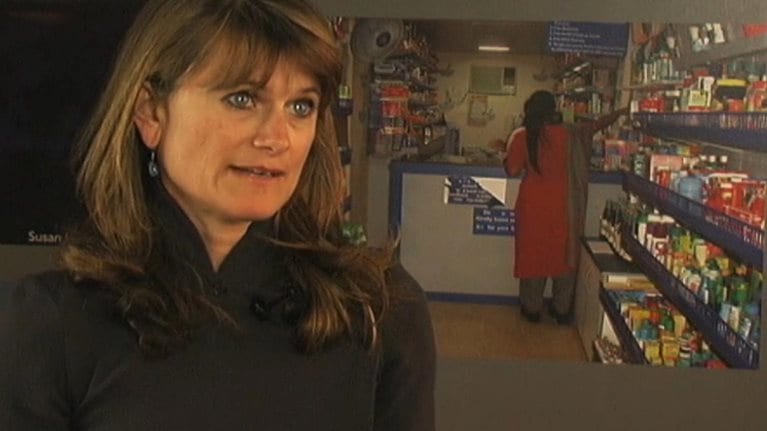In 2004, 65 percent of the frozen broiler chickens for sale in Mozambique were imported from Brazil. To get to Mozambique, the chickens were frozen and shipped through the Middle East. By the time they arrived, they were often past their sell-by date, in violation of Mozambican import restrictions. Incredibly, the Brazilian product was cheaper than the Mozambican one. Why? Brazil’s agribusiness productivity and efficiency are certainly the envy of the world. But if the Mozambican poultry sector were at all competitive, it would surely be able to sell home-raised chicken more cheaply into a growing domestic market than the Brazilians can.
Such situations are not limited to Mozambique. There are significant possibilities in Africa to unlock value in different industry sectors, and these possibilities will grow over time. Success, however, will require the government and business to adopt a strategy based on an analytical and market-oriented approach, customized for the sector and focused on helping enterprises and people make money. While ultimately reliant on commercial incentives and viability, this strategy will probably require up-front, subsidized investments to seed the market, as well the coordination of stakeholders and interventions across the value chain.
In the case of Mozambique’s poultry sector, our nonprofit organization, TechnoServe,1 with a mandate and funding from the US government, undertook a comprehensive value chain analysis starting with demand and working through the supply of feed, to layer and egg production, the feeding and growing of chicks, processing, marketing, and, ultimately, retail consumption. Our team interviewed hundreds of participants in the poultry and feed sectors and eventually assembled a strategic plan that identified and quantified potential demand, the major constraints along the value chain, the high-leverage (and other) points of intervention, and a specific industry-development program.
As is so often the case, the constraints were multiple and interrelated—a lack of locally available feed, poor models for “outgrower schemes” to contract with small-scale local farmers to raise chicks, few successful entrepreneurs operating hatcheries or abattoirs, few standards to ensure high quality and sanitary compliance, no industry organization, no retail marketing, and ineffective enforcement of tariff and import regulations. Moreover, while the overall economic returns were very attractive if the hurdles could be overcome, gaining these returns required an up-front investment and cross-sector coordination that no single commercial actor could undertake. But TechnoServe was able to help the sector move forward with an approach that emphasized pilots, learning, and expanding at multiple points along the value chain, as well as coordinating the involvement and integration of multiple stakeholders.
That effort, involving thousands of soy and maize farmers, took place in the feed grains sector, which has grown into a $60 million business, from $15 million, in five years. Work was undertaken to provide business and technical training for smallholder poultry farmers so that they could improve their production practices and to help 11 commercial poultry businesses upgrade processing machinery, expand production capacity, improve the quality of broilers, and strengthen links to smallholders. A trade group, the Mozambican Aviculture Association (AMA), was organized to represent the industry’s interests and to launch a multimedia campaign throughout the country promoting the consumption of locally produced poultry. Producers increasingly use the AMA seal on their products, as consumers associate it with a quality, standardized product. Mozambique’s government played an extensive role in the enforcement of import regulations. Along with Cargill, Michigan State University, and the University of Minnesota, the government also helped introduce bio-security measures and contingency planning for food safety in response to the threat of avian influenza.
Between 2004 and 2009, the Mozambican poultry industry grew more than fourfold, with annual production reaching upward of 23,000 tons of chicken meat in 2009 and consumption of locally produced chicken rising to 76 percent of the total market. More than 1,200 poultry jobs have been created. More than 2,500 small-scale farmers were trained and began participating in outgrower production operations, leading to two- to tenfold increases in these farmers’ household incomes. Poultry processors’ annual revenues have increased to $80 million, from $20 million. And the industry continues to grow. TechnoServe’s focus in Mozambique is now upstream (on a host of opportunities for the broader commercialization of the soy sector) and downstream (on the potential for retail chicken franchise stores).
In the past ten years, TechnoServe has similarly engaged with the cashew, fruit, forestry, and tourism sectors. Each of those interventions was different—customized for the particular opportunities and constraints of the individual sector. Yet all looked to apply donor funding to a rigorous analysis of the sector and to targeted, time-limited, and integrated interventions across the value chain to catalyze longer-term industry growth. The overall impact for Mozambique was substantial: an estimated GDP boost of 5 percent, more than 8,000 new jobs, the integration of nearly 100,000 farmers into commercially viable value chains, and more than $50 million in capital mobilized in support of new opportunities.
Mozambique is just one example. This is not easy work. But it is important and if done right can catalyze vibrant, substantial, and poverty-reducing economic growth.
This article was updated on July 7 to address an incorrect figure: a previous version inaccurately listed the production of poultry in Mozambique in 2009 as 23 tons. The correct figure is 23,000 tons.
